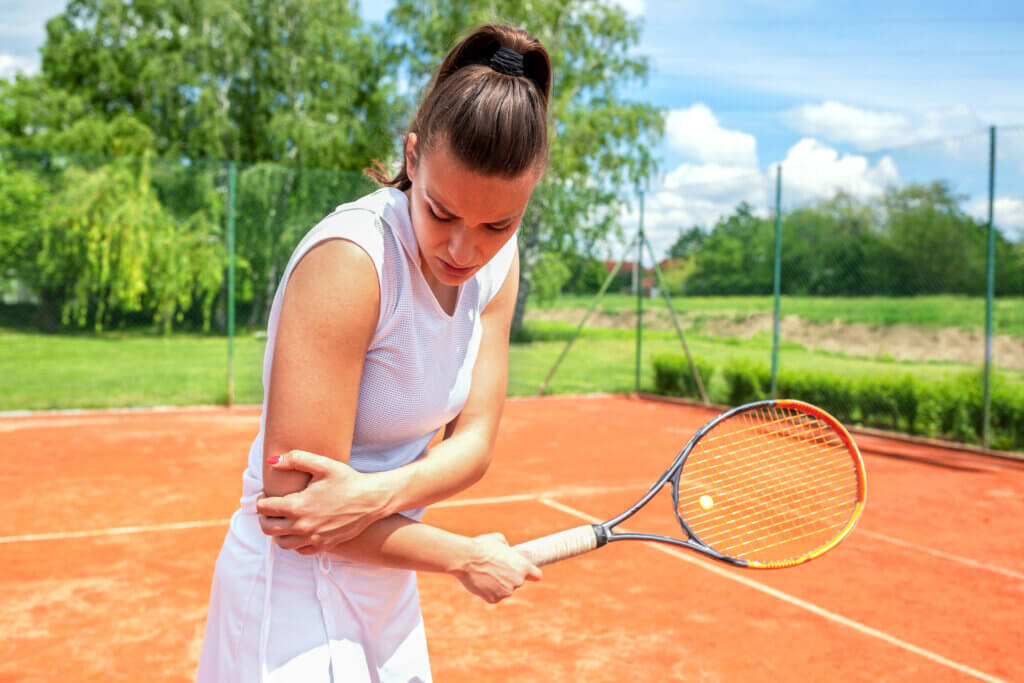Exercise is an important part of a healthy lifestyle. For many people, playing sports is a fun way to burn extra calories, socialize, and get fit. Unfortunately, this also means the occasional sports injury or a flare up of an old injury or condition.
You don’t have to be a professional or even an amateur athlete to suffer a sports injury. In fact, many times, those most susceptible to sports injuries are people who have just started exercising or participate on a recreational level.
If you’ve hurt yourself while playing a sport, don’t ignore your pain and hope it goes away on its own over time! Chances are it could worsen over time, and keep you out of the game for even longer. Allow a skilled occupational therapist at our clinic to take a look and create a plan of action to combat your pain and discomfort, and prevent future injuries. Our innovative care strategies at Hand In Hand Rehabilitation will help you find quick relief.
Common sports injuries
Most sports injuries occur from ill-prepared individuals who just jump into the activity without first increasing their strength, endurance, and flexibility. Your muscles, tendons, ligaments, and other tissues need to be warmed up to work properly. They take enormous strain during running and sports activities.
Therefore, if they are not in top condition, they are more prone to injury. Sports injuries are defined as injuries to the musculoskeletal system, including muscles, bones and tissues such as cartilage.
The most common sports injuries include:
SPRAINS: A sprain occurs when the connective tissue that joins the end of the bone with another is stretched or torn. Sprains are caused by trauma such as a fall or blow to the body that knocks a joint out of position. Ankles, knees, and wrists are most vulnerable to sprains.
STRAINS: A strain occurs when a muscle or tendon is pulled, torn, or twisted. Strains are non-contact injuries, such as those that occur from overstretching. A common example of a strain is a muscle spasm.
TORN SHOULDERS: A torn shoulder is the result of an injury to the rotator cuff. The rotator cuff is composed of the tendons and muscles around the shoulder joint.
Other sports injuries may include:
- Muscle tears
- Bone fractures
- Tennis or golf elbow
- Frozen shoulder
- Hip flexor strain
It doesn’t matter if you play golf, softball, lacrosse, swim, baseball, or another sport. Occupational therapy could help you condition and get in shape for the season, as well as help you recover from past injuries that may not have properly healed.
How an OT can help you recover from a sports injury
Your occupational therapy program may involve any or all of the following treatment methods to provide you with relief and prevent you from sustaining the same injury in the future:
- Stabilization exercises to help keep your spinal components in place as you perform everyday tasks (especially if your pain is related to a spinal injury)
- Strengthening exercises to help you enjoy better spinal support and maintain a straighter posture
- Orthotics to compensate for foot or leg imbalances that are straining your muscles
- Flexibility exercises to gently and carefully extend your pain-free range of back motion
- Alternating cryotherapy and heat therapy to relieve tissue pain and inflammation
- Chiropractic adjustments to normalize your spinal alignment and improve spinal joint function
- Lifestyle changes to prevent unnecessary strain on the back
- Cold laser therapy and/or massage therapy to soothe, warm and relax tight muscles and connective tissues
During your first appointment, your occupational therapist will go through a series of questions with you to determine where you are feeling pain and discomfort. They will also ask about your medical history to rule out any underlying causes for your condition that are not related to sports.
From there, they will work with you to create a customized treatment plan. The goal of this treatment plan will be to help restore your full range of motion and function, and also help you to return to playing your sport without pain and discomfort.
Don’t allow pain to keep you on the bench
There is nothing more exciting than taking on a new challenge, sport, or activity. For most of us, the thrill of accomplishing a physical goal is what we live for. It’s important to make sure your body is equipped to handle all of the physical activity you want to participate in.
It is important to stay active, healthy, and happy. With a little bit of preparation, you can easily do these activities and decrease your risk for injury!
If you’re living with chronic pain from a sports-related injury, call our clinic to learn about what our skilled hand and occupational therapists can do to improve your condition and overall sports performance.



